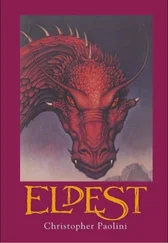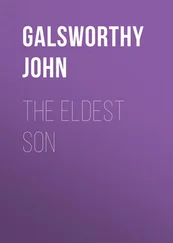Christopher Paolini
Eldest
As always, this book is for my family.
And also to my incredible fans. You made this adventure possible.
Sé onr sverdar sitja hvass!
Kvetha Fricäya.
As with many authors who undertake an epic the length of the Inheritance trilogy, I have found that the creation of Eragon , and now Eldest , has become my own personal quest, one that has proven every bit as transforming as Eragon’s.
When first I conceived Eragon , I was fifteen — not quite a boy and not yet a man — just out of high school, unsure of what path to take in life, and addicted to the potent magic of the fantasy literature that adorned my shelves. The process of writing Eragon , marketing it across the world, and now finally completing Eldest has swept me into adulthood. I am twenty-one now and, to my continual astonishment, have already published two novels. Stranger things have occurred, I’m sure, but never to me.
Eragon’s journey has been my own: plucked from a sheltered rural upbringing and forced to rove the land in a desperate race against time; enduring intense and arduous training; achieving success against all expectations; dealing with the consequences of fame; and eventually finding a measure of peace.
Just as in fiction when the determined and well-meaning protagonist — who really isn’t all that bright, now is he? — is helped along his way by a host of wiser characters, so too have I been guided by a number of stupendously talented people. They are:
At home: Mom, for listening whenever I need to talk about a problem with the story or characters and for giving me the courage to throw out twelve pages and rewrite Eragon’s entrance into Ellesméra (painful); Dad, as always, for his incisive editing; and my dear sister, Angela, for deigning to reprise her role as a witch and for her contributions to her doppelgänger’s dialogue.
At Writers House: my agent, the great and mighty Comma Master, Simon Lipskar, who makes all things possible (Mervyn Peake!); and his brave assistant Daniel Lazar, who keeps the Comma Master from being buried alive underneath a pile of unsolicited manuscripts, many of which I fear are the result of Eragon.
At Knopf: my editor, Michelle Frey, who has gone above and beyond the call of duty in performing her job and has made Eldest so much better than it would have been otherwise; publicity director Judith Haut, for once again proving that no feat of promotion is beyond her reach (hear her roar!); Isabel Warren-Lynch, art director nonpareil who, with Eldest , has exceeded her previous accomplishments; John Jude Palencar, for a cover painting that I like even better than the one for Eragon ; copy chief Artie Bennett, who has done a splendiferous job of checking all the obscure words in this trilogy and probably knows more than I do about the ancient language, although his Urgal is a mite weak; Chip Gibson, grand master of the children’s division at Random House; Nancy Hinkel, publishing director extraordinaire; Joan DeMayo, director of sales (much applause, cheers, and bowing!) and her team; Daisy Kline, who with her team designed the wonderful and eye-catching marketing materials; Linda Palladino, Rebecca Price, and Timothy Terhune, production; a bow of thanks to Pam White and her team, who have helped to spread Eragon to the four corners of the world; Melissa Nelson, design; Alison Kolani, copy editing; Michele Burke, Michelle Frey’s dedicated, hardworking assistant; and everyone else at Knopf who has supported me.
At Listening Library: Gerard Doyle, who brings the world of Alagaësia to life; Taro Meyer for getting the pronunciation of my languages just right; Jacob Bronstein for pulling all the threads together; and Tim Ditlow, publisher of Listening Library.
Thank you all.
One more volume to go and we shall reach the end of this tale. One more manuscript of heartache, ecstasy, and perseverance... One more codex of dreams.
Stay with me, if it please you, and let us see where this winding path will carry us, both in this world and in Alagaësia.
Sé onr sverdar sitja hvass!
Christopher Paolini
August 23, 2005
Christopher Paolini’s abiding love of fantasy and science fiction inspired him to begin writing his debut novel, Eragon , when he graduated from high school at fifteen after being homeschooled all his life. He became a New York Times bestselling author at nineteen. Christopher lives in Montana, where the dramatic landscape feeds his visions of Alagaësia. He is at work on the final volume in the Inheritance trilogy.
You can find out more about Christopher, Eldest , and Inheritance atwww.alagaesia.com.
There is also available in an unabridged audio edition from Listening Library
The songs of the dead are the lamentations of the living.
So thought Eragon as he stepped over a twisted and hacked Urgal, listening to the keening of women who removed loved ones from the blood-muddied ground of Farthen Dûr. Behind him Saphira delicately skirted the corpse, her glittering blue scales the only color in the gloom that filled the hollow mountain.
It was three days since the Varden and dwarves had fought the Urgals for possession of Tronjheim, the mile-high, conical city nestled in the center of Farthen Dûr, but the battlefield was still strewn with carnage. The sheer number of bodies had stymied their attempts to bury the dead. In the distance, a mountainous fire glowed sullenly by Farthen Dûr’s wall where the Urgals were being burned. No burial or honored resting place for them.
Since waking to find his wound healed by Angela, Eragon had tried three times to assist in the recovery effort. On each occasion he had been racked by terrible pains that seemed to explode from his spine. The healers gave him various potions to drink. Arya and Angela said that he was perfectly sound. Nevertheless, he hurt. Nor could Saphira help, only share his pain as it rebounded across their mental link.
Eragon ran a hand over his face and looked up at the stars showing through Farthen Dûr’s distant top, which were smudged with sooty smoke from the pyre. Three days. Three days since he had killed Durza; three days since people began calling him Shadeslayer; three days since the remnants of the sorcerer’s consciousness had ravaged his mind and he had been saved by the mysterious Togira Ikonoka, the Cripple Who Is Whole. He had told no one about that vision but Saphira. Fighting Durza and the dark spirits that controlled him had transformed Eragon; although for better or for worse he was still unsure. He felt fragile, as if a sudden shock would shatter his reconstructed body and consciousness.
And now he had come to the site of the combat, driven by a morbid desire to see its aftermath. Upon arriving, he found nothing but the uncomfortable presence of death and decay, not the glory that heroic songs had led him to expect.
Before his uncle, Garrow, was slain by the Ra’zac months earlier, the brutality that Eragon had witnessed between the humans, dwarves, and Urgals would have destroyed him. Now it numbed him. He had realized, with Saphira’s help, that the only way to stay rational amid such pain was to do things. Beyond that, he no longer believed that life possessed inherent meaning — not after seeing men torn apart by the Kull, a race of giant Urgals, and the ground a bed of thrashing limbs and the dirt so wet with blood it soaked through the soles of his boots. If any honor existed in war, he concluded, it was in fighting to protect others from harm.
Читать дальше
![Christopher Paolini Eldest [en] обложка книги](/books/223279/christopher-paolini-eldest-en-cover.webp)


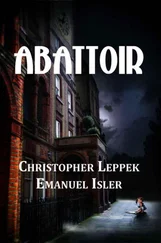
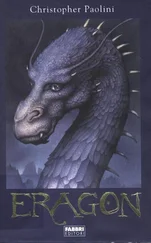
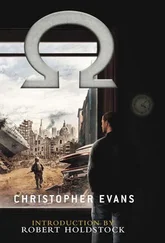
![Christopher Paolini - Brisingr [en]](/books/195528/christopher-paolini-brisingr-en-thumb.webp)
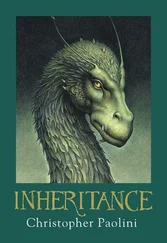
![Christopher Paolini - Eragon [en]](/books/248440/christopher-paolini-eragon-en-thumb.webp)
